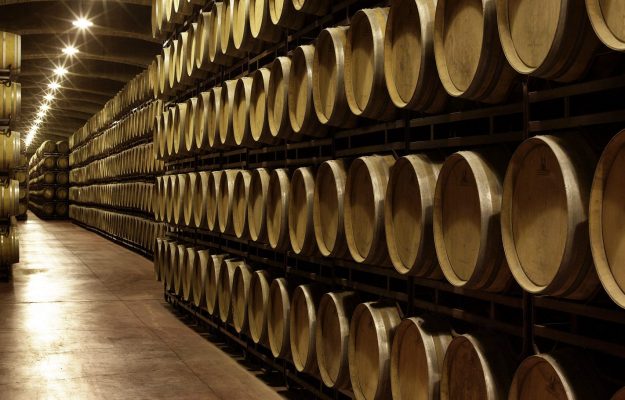The revolving pledge on DOC and PGI agricultural and food products - wines, cheeses and high quality cold cuts - will guarantee bank loans. The decree of the Ministry of Agricultural Policies has been published and consequently, has given the green light to the measure provided for by the Cure Italy Decree. Several consortia of the leading Italian denominations had anticipated the approval and have signed agreements with banking groups in their respective territories, utilizing the revolving pledge.
Previously, the Consortium of Vino Nobile di Montepulciano had signed an agreement with the bank, Monte dei Paschi di Siena, along the lines of the one the Chianti Classico Wine Consortium signed with the Siena bank at the end of June. At the end of July, instead, the Consorzio di Tutela Barolo and Barbaresco Alba Langhe Dogliani signed a collaboration agreement with Intesa Sanpaolo, one of the most important banking companies in Italy, and before that the Consorzio del Brunello di Montalcino had signed an agreement with the bank Credem (Credito Emiliano S.p.A.) to activate, starting today, a new credit line in favor of all the member companies of the territory, which had provided for loans guaranteed by wine stocks through revolving funds or other suitable formulas to’ label is a story in itself, as it has focused on a sort of “en primeur eno-financial”, of wine that remained in the cellar, available to the producer – who, in the meantime, could work towards putting it on the market - and, at the same time, generate immediate liquidity for the company, guaranteed by bank credit, thanks to an agreement signed with the bank, Banco BPM.
The agro-food sector, pointed out the Italian farmers association, Coldiretti, is a treasure that spreads all over the peninsula, and is especially appreciated internationally, and which is quite appealing to banks that are interested in investing in the quality and value of Made in Italy. The revolving pledge, Coldiretti explained, has been extended, by law, to all denomination of origin agricultural and food products to support the business activities necessary to recover from this situation in which the Covid-19 emergency has cut 10% of Italians food consumption in 2020. Food specialties, continued Coldiretti, can be pledged starting from the day they are put into the production and / or ripening and / or storage rooms, in exchange for loans to be collected while maintaining ownership of the product. These can be replaced without further stipulations. It is an innovative form of financing that is particularly adaptable, Coldiretti stated, for foods that require a long time to complete the production cycle; such as aging of wines, aging of cheeses or aging of cold cuts/cured meats.
These products are all high-end Made in Italy specialties that have been drastically affected by the collapse of the catering and restaurant channel, which even though there has been a slight increase in domestic spending in Italy, in which the catering channel has a vital outlet market, it has not at all been compensated. In 2020, Coldiretti has estimated that in Italy 24 billion euros less will be spent at the table and exports of agro-food products will be in great difficulty, which had often increased stocks and now can be given as guarantees to get through the crisis. Italy is the European leader in quality agro-food, concluded Coldiretti, boasting 305 specialties with geographical indication recognized at the European Community level and 415 DOC / DOCG wines, 5.155 traditional regional products registered throughout the Peninsula that generate 16 billion euros in value.
Copyright © 2000/2026
Contatti: info@winenews.it
Seguici anche su Twitter: @WineNewsIt
Seguici anche su Facebook: @winenewsit
Questo articolo è tratto dall'archivio di WineNews - Tutti i diritti riservati - Copyright © 2000/2026







































































































































































































